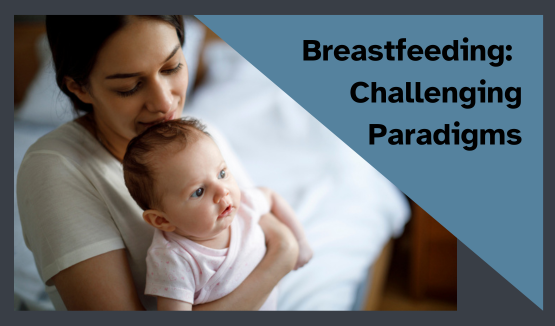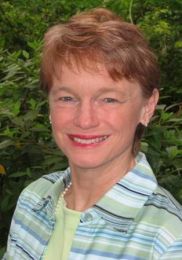
Trauma and breastfeeding
Trauma affects at least one-third of childbearing women. This presentation will provide an overview of the types of trauma women are most likely to experience and provide strategies for working effectively and comfortably with trauma survivors. Dr Kendall- Tackett also provides an overview of research showing that breastfeeding helps trauma survivors cope and lessens the risk of intergenerational trauma.
1 L Cerp (II, V, VI, VII)
In this presentation, Associate Professor Wendy Ingman will cover:
The evolution of lactation
The biology of the breast over the life course - Menstrual cycle - Pregnancy - Lactation - Involution
Why breastfeeding reduces breast cancer risk
Mastitis and lactation insufficiency (new research challenging old paradigms)
1 L Cerp (I, II, III, V)
In this presentation, Jan Tedder will explore the topic of nursing strikes, looking at the differing reasons for this and predictable times when development may impact a baby’s behaviour and mother’s breastfeeding experience. She will review these developmental events throughout the first year.
Objectives
1 L Cerp (I, V, VI, VII)

Jan Tedder
Jan Tedder is from the University of North Carolina at Chapel Hill (USA) where she works as a nurse practitioner and lactation consultant and teaches family physician residents. A graduate of the University of North Carolina at Chapel Hill and at Charlotte, Ms. Tedder has worked with young families in primary care for decades. She has developed lactation and well child programs, created parent education outreach projects, and consulted with both parents and professionals on critical lactation and child development issues. Ms. Tedder created HUG Your Baby, winner of the National Health Information Award and the World Wide Web Health Award. HUG Your Baby’s website, blog and parent education resources are now used in over 100 countries around the world. She has published HUG research and program descriptions in peer-reviewed journals, lectured internationally on issues related to infants and families, and created well-received online training for midwives, nurses, childbirth educators, lactation specialists, and doulas. Ms. Tedder was inducted into the International Sigma Theta Tau Honor Society of Nursing and was chosen as the North Carolina (USA) Maternal-Child Health Nurse of the Year.

Kathleen Kendall-Tackett
Dr Kendall-Tackett is a health psychologist and International Board-Certified Lactation Consultant, and the director of Praeclarus Press, a small press specializing in women's health. For the past 10 years, Dr Kendall-Tackett has been editor-in-chief of Psychological Trauma. She is fellow of the American Psychological Association in Health and Trauma Psychology and past president of the APA Division of Trauma Psychology. Dr Kendall-Tackett specializes in women's-health research including breastfeeding, depression, trauma, and health psychology, and has won many awards for her work including the 2019 President’s Award for Outstanding Contributions to the Field of Trauma Psychology from the American Psychological Association, and is a member of Sigma Xi, the Scientific Research Honor Society.
Dr. Kendall-Tackett has authored more than 500 articles or chapters and is author or editor of 42 books. Her most recent books include Breastfeeding Doesn’t Need to Suck (2022), Women’s Mental Health Across the Lifespan (2017), and most recently, Depression in New Mothers, 4th Ed - Vols I & II (2023, 2024).

Wendy Ingman
A/Prof Wendy Ingman is a breast biologist at the University of Adelaide, based at The Queen Elizabeth Hospital. Her research explores the biology of how the breast develops and functions to better understand how disease states occur, including lactation mastitis and breast cancer. Wendy’s research challenges old paradigms and explores new concepts in how the breast develops and functions to improve breast health across the life course.